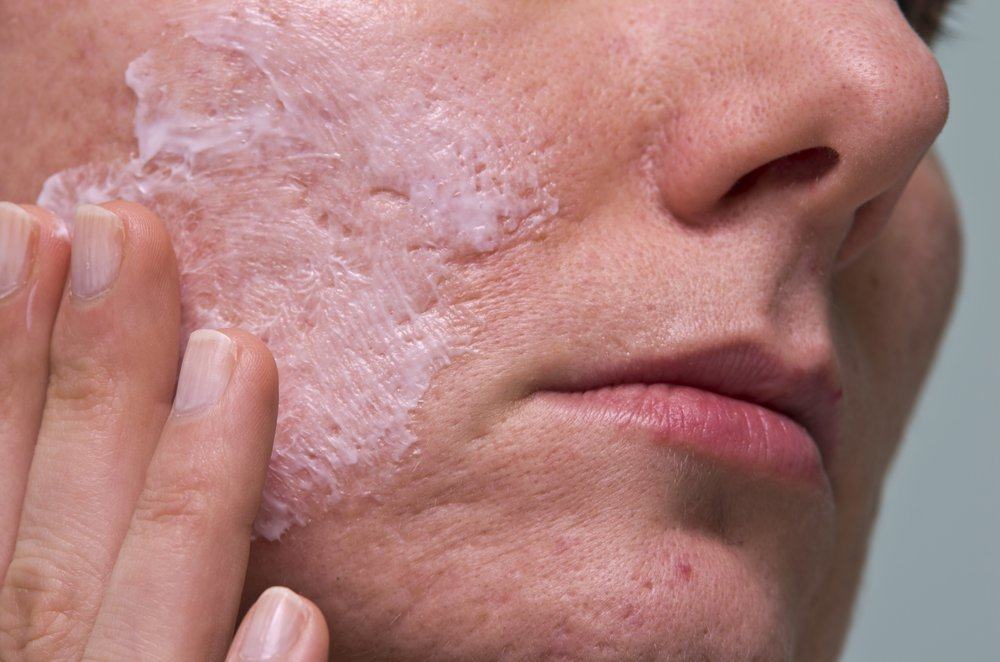Contents:
- Medical Video: Can you get pregnant if you have polycystic ovary syndrome?
- What is PCOS?
- What are the causes of PCOS?
- 1. Descendants
- 2. Excess insulin
- 3. Low level inflammation
- What are the signs and symptoms of PCOS?
- Can PCOS cause other diseases?
- Can a woman with PCOS get pregnant?
Medical Video: Can you get pregnant if you have polycystic ovary syndrome?
Have you ever heard of PCOS? PCOS is a hormone-related disease that usually occurs in women of childbearing age. Maybe you rarely hear this disease, but this disease can affect anyone. Because of this disease, maybe you could be difficult to get pregnant. To find out more about this disease, you should refer to the following review.
What is PCOS?
Polycystic ovary syndrome (PCOS) or in Indonesian language called polycystic ovary syndrome is a problem with female hormonal balance. In PCOS, female sex hormone levels, namely the hormone estrogen and the hormone progesterone are not balanced. Women with PCOS usually have small cysts (fluid-filled bags) in their ovaries, which make the ovaries enlarge. These cysts are not dangerous, but can cause hormonal imbalances. Changes in one hormone can trigger other hormones, resulting in other changes.
Because of its hormonal imbalance, women with PCOS can experience irregular menstrual periods. This irregularity in the menstrual period can make it difficult for women with PCOS to get pregnant. Besides being able to cause irregular menstrual periods, PCOS can also cause excessive hair growth, acne, and obesity. If PCOS is not treated, over time it can also cause more serious illnesses, such as type 2 diabetes mellitus and heart disease.
What are the causes of PCOS?
Until now, no one knows for sure what can cause polycystic ovary syndrome. Maybe these factors can cause polycystic ovary syndrome:
1. Descendants
This is the most likely factor that can cause you to suffer from PCOS. If your mother or sister has PCOS, you may have a greater chance of getting PCOS. There are also those who say that PCOS can be derived from the family side of the mother and father. Your risk of suffering from PCOS is high if one of the women in your family has PCOS or has irregular menstrual periods or has diabetes. The researchers also looked at the possibility that certain genes were related to PCOS.
2. Excess insulin
If your body is resistant to insulin, your ability to use insulin can be disrupted, so the pancreas will release more insulin to provide glucose (energy) for the cell. Excess insulin may then affect the ovaries by increasing androgen production. This increase in androgen production can disrupt the ovary's ability to ovulate.
3. Low level inflammation
Research has shown that women with PCOS have low levels of inflammation. This low level of inflammation can stimulate the polycystic ovary to produce androgens.
The excess of androgen hormone is one of the factors that can cause PCOS. Androgens are male sex hormones which are also produced by the female body in small amounts. In PCOS, women produce androgen hormones more than normal, which can affect the development and release of eggs by the ovary, grow zits, and excessive hair growth.
What are the signs and symptoms of PCOS?
Symptoms of PCOS can occur after a woman has had her first menstruation (menarche), or there are also those that appear after years of regular menstruation. Women with PCOS may show different symptoms, but there are symptoms that are common in every PCOS sufferer, namely:
- Irregular menstrual periods. Often times women with PCOS have less than nine menstrual periods per year, menstrual failure for 4 months or more, or the distance between menstruation is more than 35 days. Some women with PCOS can also not experience menstrual periods, and others can experience severe bleeding.
- Acne.
- Excess hair on the face and body. Fine hair on a woman's face is thicker and darker, and also has excess hair on the chest, abdomen and back.
- Hair thinner on the scalp or experiencing male pattern baldness (androgenic alopecia).
- Increase excess weight or difficulty losing weight.
- Fertility problems. Many women with PCOS have difficulty getting pregnant (infertility).
- Polycystic ovary. The polycystic ovary is larger and contains a number of small fluid sacs that surround the egg.
Can PCOS cause other diseases?
PCOS can be associated with an increased risk of other diseases, such as:
- Diabetes. More than half of women with PCOS can have diabetes or pre-diabetes before the age of 40 years. This may be due to the relationship between excess insulin and the androgen hormone which is one of the PCOS factors.
- High blood pressure (hypertension). Women with PCOS have a higher risk of developing high blood pressure compared to women who do not experience PCOS.
- High cholesterol. Women with PCOS usually have lower levels of bad cholesterol (LDL) than the level of good cholesterol (HDL) in their bodies. High cholesterol can increase the risk of heart disease and stroke.
- Sleep apnea. Sleep apnea is a momentary disorder when a person stops breathing repeatedly during sleep. Usually women with PCOS are also obese or overweight. This causes the risk to experience higher sleep apnea.
- Endometrial cancer.Women with PCOS usually experience problems with ovulation, obesity, insulin resistance, and diabetes. All of this can increase the risk of developing endometrial cancer (the lining of the uterus).
- Depression and anxiety. Common in women with PCOS.
The sooner you know that you have PCOS, the lower your risk of developing complications as above. Not smoking, doing regular exercise, and eating foods with balanced nutrition can reduce your risk of experiencing these complications.
Can a woman with PCOS get pregnant?
A woman with PCOS does not mean she cannot get pregnant. You can still get pregnant if you have PCOS. However, if you are pregnant and have PCOS, you must pay more attention to your content. It is best to diligently consult your doctor for a doctor because pregnant women with PCOS have a high risk of experiencing:
- Miscarriage
- Gestational diabetes
- Preeclampsia
- And, caesarean birth
Your baby is also at risk for being overweight while in the womb or commonly called a big baby (macrosomia).
You can reduce health risks during pregnancy by doing:
- Maintain weight within normal limits before pregnancy
- Keep blood sugar levels within normal limits before becoming pregnant
- Applying a healthy diet
- Do regular exercise
- Meet your folic acid needs starting from before pregnancy, can be from food or supplements
READ ALSO
- Various Things That Cause Women to be Susceptible to Miscarriage
- 3 Factors That Cause Baldness
- 9 Health Conditions That Can Harm Pregnancy












